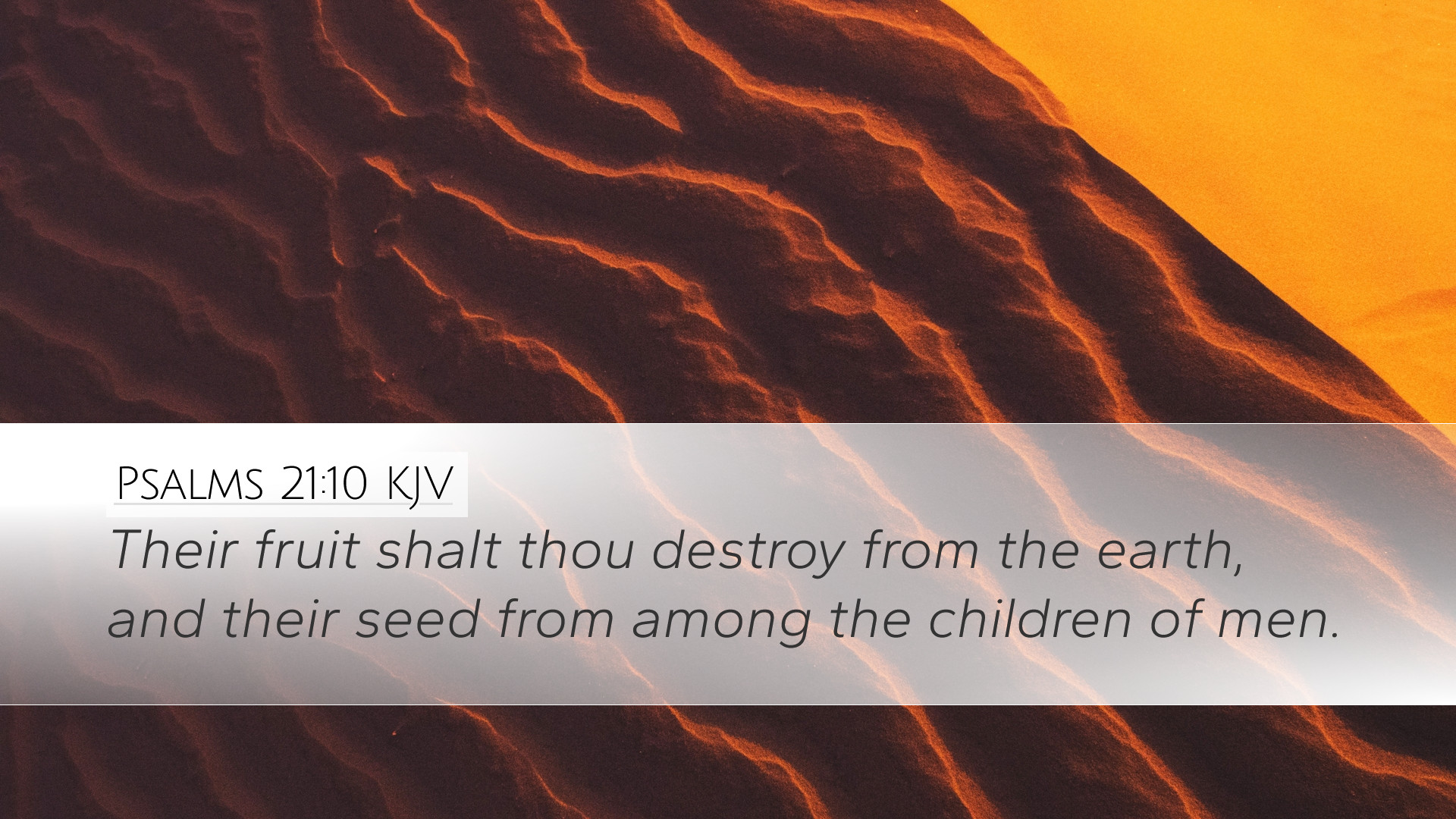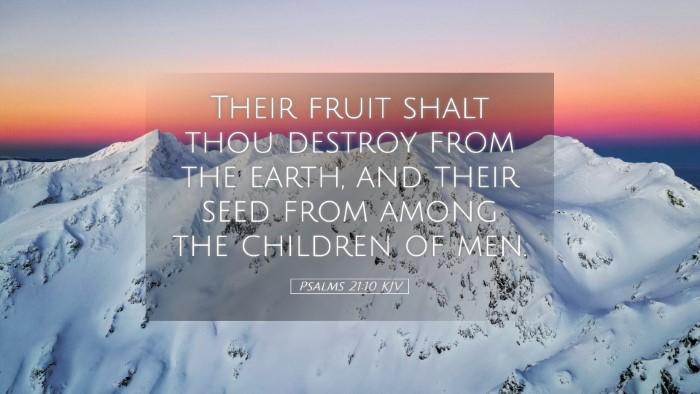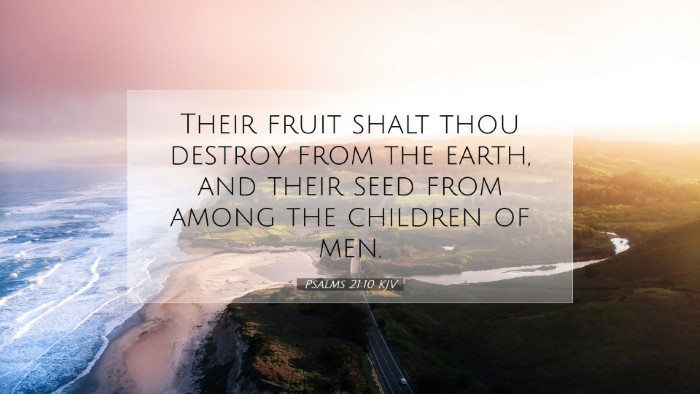Psalms 21:10 - Commentary Overview
Verse: "Their fruit shalt thou destroy from the earth, and their seed from among the children of men."
Context and Background
Psalm 21 is a royal psalm, attributed to David, and it expresses thanksgiving for the blessings of God given to the king. This verse particularly deals with the consequences inflicted upon the enemies of God, showcasing God’s sovereignty and justice.
Interpretation of the Verse
The verse emphasizes the ultimate fate of the wicked—God will not only blot them out but will also eradicate their legacy. Such imagery of destruction serves as a reminder of God's power to judge.
Insights from Public Domain Commentaries
Matthew Henry's Commentary
Matthew Henry articulates the verse as a declaration of God's divine retribution against those who oppose His will. He asserts that the 'fruit' represents the works and contributions of the wicked to society, which ultimately face destruction due to their transgressions. Thus, God's judgment is both a present and future reality, serving as a warning to those who oppose the divine order. Henry remarks that "the seed from among the children of men" indicates that the wicked will not leave a lasting legacy or progeny that will propagate their ideas or sins. The consequences of their actions will ripple through generations, resulting in their extinction from memory and influence.
Albert Barnes' Notes on the Bible
Albert Barnes interprets the psalmist's declaration regarding the destruction of the wicked's fruit and seed as symbolic of their total annihilation. He emphasizes that this destruction is not merely physical but extends to their influence and legacy. Barnes points out that the Lord is committed to ensuring that the righteous flourish while the wicked wither away. He highlights that the “fruit” represents not only personal sin but the corporate consequences of wickedness in society. He elucidates that God's providence orchestrates history in such a way that the plots of the wicked ultimately result in their demise.
Adam Clarke's Commentary
Adam Clarke presents a nuanced understanding of the verse by emphasizing the historical context of Israel's enemies. He states that this part of the psalm likely alludes to the particular wickedness of nations and their rulers that rise against God’s people. Clarke notes that the phrase serves as a call, instilling hope in the faithful that divine justice will prevail. He believes that the psalm illustrates the power of God to erase the memory of those who seek to destroy His kingdom, thus providing encouragement to the faithful who witness the struggles against adversities.
Theological Implications
This verse raises profound theological concepts about divine judgment and the fate of the unrighteous. It reflects the belief in God's active role in human history, ensuring that evil will not ultimately triumph. Structurally, this promise of eradication stirs a call to repentance among the faithful, warning them of the consequences of turning away from God's statutes.
Practical Applications for Pastors and Theologians
For pastors and theologians, this verse serves as a vital teaching tool on the nature of sin and the serious repercussions it incurs. The assessment of what it means to have one's “fruit destroyed” is worthy of exploration in sermons that address the costs of sin—both personally and corporately. Additionally, the hope presented for the faithful should be emphasized, assuring congregations that God's justice, though sometimes delayed, will punctually arrive.
Conclusion
Psalms 21:10 stands as a stark reminder of God's capability to bring justice to bear on the earth by quelling the wicked and securing a future for the righteous. This verse not only represents judgment but also invites a reflective response regarding one's spiritual trajectory. Engaging deeply with this text allows for a richer understanding of God's character and encourages believers towards righteousness, anchoring their hope in divine justice.


